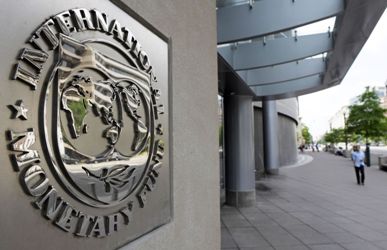Sudan appeals for IMF help to alleviate economic woes
July 17, 2018 (KHARTOUM) – Ministry of Finance and Economic Planning has called on the International Monetary Fund (IMF) and donor countries to contribute to easing the burden of economic reform policy on Sudanese people.

Sudan’s Minister of Finance Mohamed Osman al-Rikabi said the visit comes within the framework of the continued consultations between Sudan and the IMF.
He called on the IMF to assist his country to resume international banking transactions following the lifting of the U.S. trade sanctions.
Last October, Washington permanently cancelled 20-year economic sanctions on Sudan opening the door for the normalization of bilateral relation and removal of remaining sanctions on the east African country particularly its removal from the list of countries sponsoring terrorism.
Economic conditions in Sudan have been challenging since the secession of South Sudan in 2011 and the loss of the bulk of oil production and exports.
The withdrawal of South Sudan oil has compounded the difficult external environment, including debt arrears, limited access to external financing, U.S. sanctions, and the withdrawal of correspondent bank relations.
Sudan has begun a series of economic reforms in line with IMF recommendations to try to bolster the economy, months after a U.S. decision to lift sanctions raised hopes that badly needed investment may return.
The reform policies included austerity measures containing removal of subsidies as the country struggles in the face of inflation running at about 111% and an acute shortage of hard currency that has sapped import activity.
Austerity measures in Sudan have sparked sporadic public protests earlier this year.
Since a few years, the East African nation and the IMF have engaged in a Staff-Monitored Program (SMP) which they say would restore macroeconomic stability, strengthen social safety nets, and develop the required reforms to refocus the economy on its non-resource sector and lay the groundwork for sustainable economic growth.
The SMP is not supported by the use of the IMF’s financial resources; nor is it subject to the endorsement of the Executive Board of the fund.
(ST)
